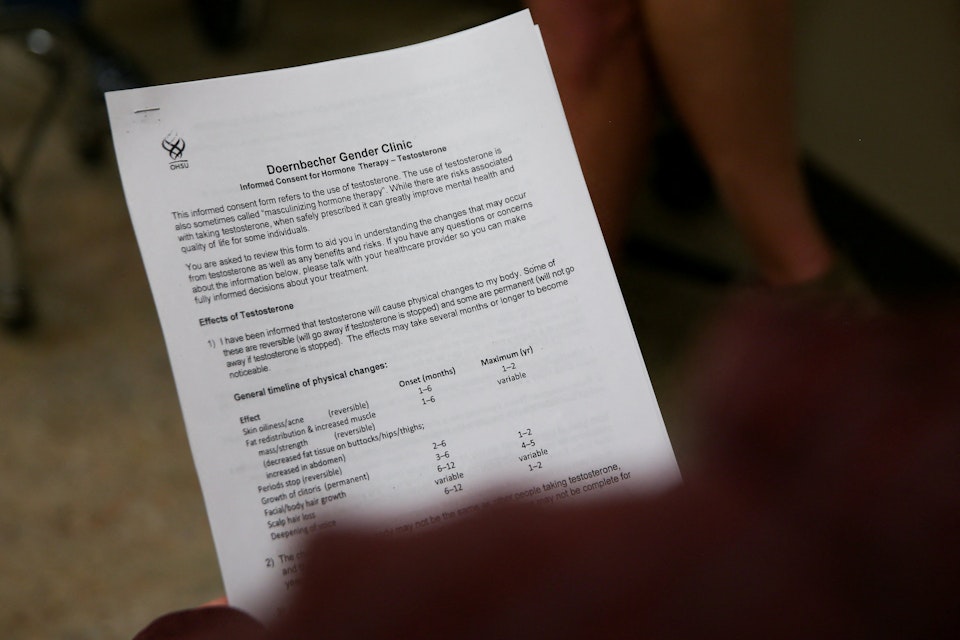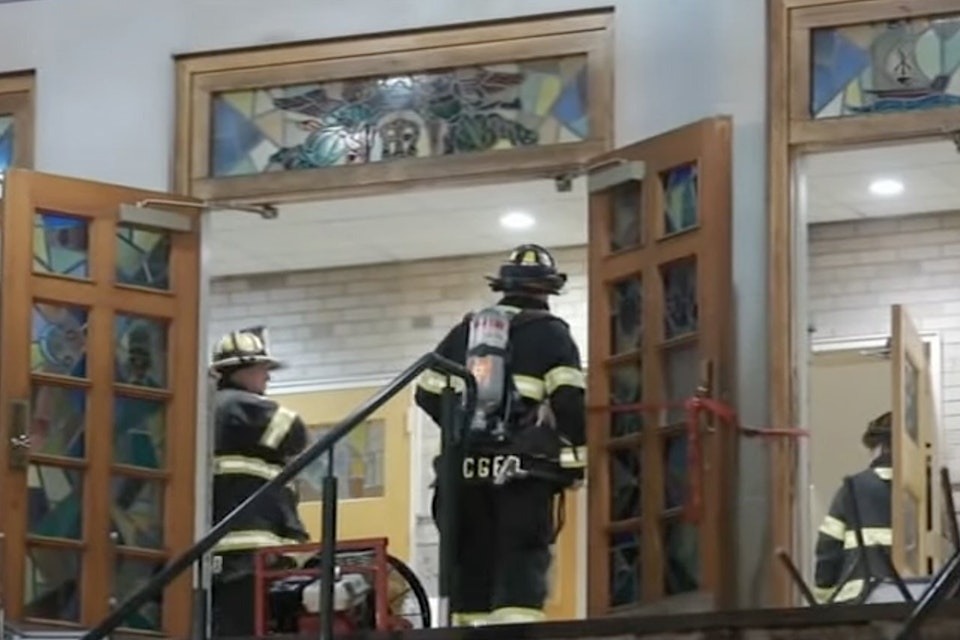 Valerie Giggie, who has celiac disease, receives a low-gluten host from Scott Gordon during Communion at St. Joseph the Worker Parish in Lake Orion on May 10.
Valerie Giggie, who has celiac disease, receives a low-gluten host from Scott Gordon during Communion at St. Joseph the Worker Parish in Lake Orion on May 10.Detroit — Valerie Giggie, like most practicing Catholics, adores the holy Eucharist and looks forward to receiving the “source and summit” of her faith each weekend at Mass.
So when she was diagnosed last September with celiac disease, an autoimmune condition in which the body attacks its own intestinal lining if it digests anything made with gluten — including a wheat host — she was devastated.
“It was that Sunday that when I approached the altar at holy Communion, I came back and I was just crying because I was thinking ‘I won’t be able to do this anymore. I won’t be able to go up with everyone else and participate in this Eucharistic meal, in this Communion, as a community,’” said Giggie, a mother of nine and a member of St. Joseph the Worker Parish in Lake Orion. “I just cried because of all the times I had taken the Eucharist for granted. Part of me was thinking, ‘Why doesn’t Jesus want me to receive him anymore? Why am I being excluded?’”
Giggie said she experienced a “whole gamut of emotions and questions” before she discovered some of the options the Church provides for Catholics whose medical conditions make reception of Communion difficult.
To be valid, Church tradition and canon law require that Eucharistic hosts be made of wheat flour, which contains gluten, said Sr. Georgette Zalewska, RSM, associate director of Christian worship for the Archdiocese of Detroit.
“That’s what Christ used: Bread and wine. They’ve become the ultimate symbols in the Church of Communion,” Sr. Zalewska said. “It has to be wheat, it cannot be any other substance” (such as rice), she added.
That said, there are other options for those with gluten sensitivity, including the use of hosts made with a very small amount of gluten — as low even as 0.01 percent — or the reception of Communion under the form of wine only, since “Christ is present whole and entire in each of the species,” according to the Catechism of the Catholic Church (No. 1377).
Many parishes in the Archdiocese of Detroit offer low-gluten hosts to parishioners who request them, Sr. Zalewska said.
“I don’t know any numbers, but I have been contacted both by parishes and individuals inquiring about the procedure for it, so I know it’s happening all over,” she said.
Fr. Eugene Katcher, pastor of Resurrection Parish in Canton, said at least two of his parishioners have gluten sensitivity. To be able to offer an alternative that’s not dangerous for them “is a great advantage,” he said. “Many times before that they wouldn’t receive the wheat hosts because they had to be very cautious. They had to suffer before (low-gluten hosts were offered).”
Before Mass, the parishioners alert the celebrant and sacristan, who place the low-gluten hosts in a pyx (a small container for transporting hosts) to be brought up with the offertory.
“They are kept in a pyx so they don’t come in contact with the rest of the hosts,” Fr. Katcher said.
Because gluten “is what sticks everything together,” Giggie said, the Eucharistic ministers at her parish switch hands to distribute the low-gluten hosts to avoid accidentally contacting them with the other hosts.
Giggie says she fights the temptation to consider herself “a nuisance having to ask for special treatment,” but said no one has ever treated her that way. She acknowledged the graciousness of those who make the reception of Communion for celiac sufferers possible.
“I have nothing but gratitude for these extraordinary ministers of holy Communion, because they’re always very welcoming,” Giggie said, adding that even at church potlucks people have been considerate and brought gluten-free dishes. “It’s a difficulty, but it also gives you the opportunity to meet people.”
Giggie said she knows it’s not possible to have a completely gluten-free Eucharistic host, and acknowledged there are some people who cannot risk even a tiny bit of gluten.
“I may end up being one of them — I’m new to all this, and I haven’t had that many tests yet,” she said. If it comes to that, she said she might opt to just receive from the chalice, or take a “spiritual communion” if that is not available, which is “going to be hard,” she said.
Giggie said she takes solace in the fact that St. Therese of Lisieux, toward the end of her life, was only able to receive a spiritual communion — “some pretty big shoes to fill,” she added, “but I’ll try to have the same kind of attitude.”
“It’s a different cross that needs to be borne or a sacrifice that needs to be made,” she said. “I’m grateful for the low-gluten hosts being available, but if they weren’t, I wouldn’t stop going to Mass.”
Celiac disease
May is Celiac Awareness Month. To learn more about celiac disease and other gluten-sensitivity conditions, which affect approximately one in every 133 people, visit www.celiaccentral.org.
Low-gluten hosts
According to the guidelines from the Archdiocese of Detroit and the U.S. Conference of Catholic Bishops, parishes may purchase low-gluten altar bread from one of three approved distributors in the United States. To inquire, contact the Archdiocese of Detroit’s Office of Christian Worship at (313) 237-4697.
Mustum
Sr. Zalewska said the Church also considers those who might not be able to consume wine, such as priests who might struggle with alcoholic disease. They can be given permission to use what’s known as “mustum” during the celebration of the Mass.
“Mustum originates from the grape, so it’s kind of a wine, but it has a minimum amount of alcohol in it” due to the fermentation process being arrested shortly after its start, Sr. Zalewska said.
Like with low-gluten hosts, permission must be granted by the archbishop to use mustum, and only a limited number of distributors are approved, she said.
—The Michigan Catholic










